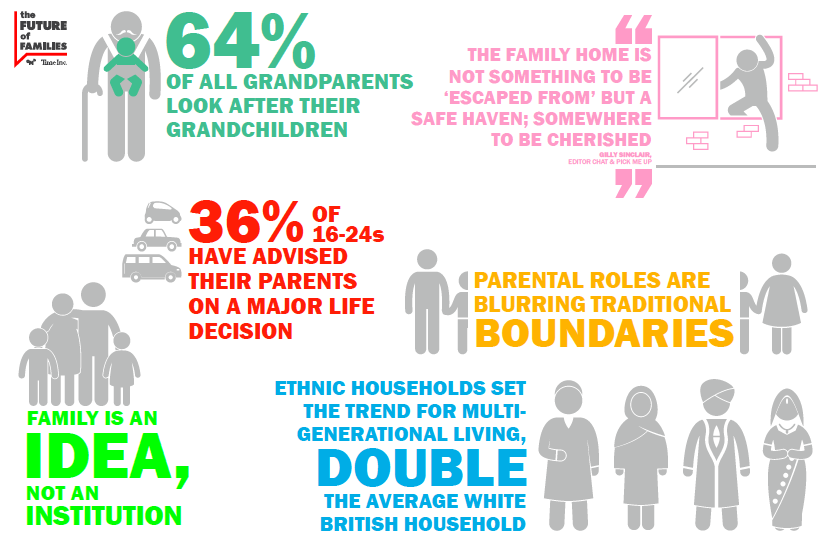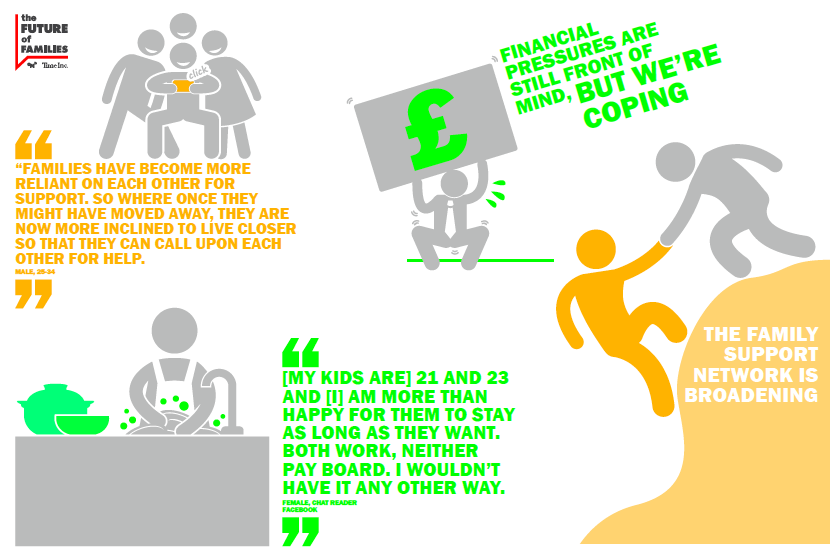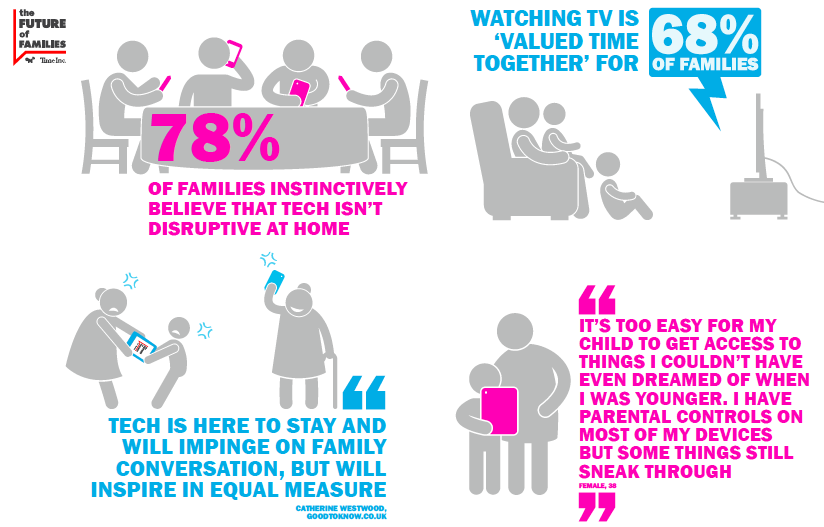Earlier in October, the media agency OMD UK in partnership with the UK’s leading publishing company Time Inc. UK presented the results of their second-year joint research project aimed to better understand the ever-changing British society—the report called The Future of Britain, and its specific part The Future of Families.
Using two in-house research panels—OMD’s Snapshots and Time Inc.’s Origin Lounge—the team behind the study interviewed the publishing house’s editors and conducted two quantitative surveys of 4,000 UK respondents—family members of different ages, ethnicity and social backgrounds, representing different types of the UK households.
The study has uncovered three main trends that reposition the traditional views on «family» as an institution. Some of them are close to findings of Dragon Rouge UK’s socio-cultural study «Family of the Future», conducted last year, in 2013.
The main findings of the study, that brands and agencies should take into consideration, are, as follows:
1. A «2.4» average family concept is no longer viable.

The perception of a «typical» family structure in the UK has become more fluid as we see a rising number of second-marriage couples, separated couples, co-habiting partners, civil partnerships with or without children. Interestingly, 19% of the polled UK residents consider friends part of their family, while almost one third (29%) think of their pets as family members.
Parental roles have become more fluid, too. 45% modern UK moms and dad share car driving duties, 62%—share teaching children some family views and values, 67%—share general childcare responsibilities.
A number of UK families with grown-up children still living in their parents’ house in 2014 accounts for 25%. Around 77% of parents agree that children will live with them longer and it generally has a positive impact on the whole household. As several family generations share a house, around 64% of grandparents look after their grandchildren, saving on childcare fees nearly £7.3bn per year.
The researchers make a conclusion that the proliferation of multi-generation larger households will have a positive impact on the British society both financially and emotionally. So here the second major trend comes.
2. UK families unite under financial pressure.

Financial insecurity and concerns about the cost of living (70%) or/and paying rent or mortgages (33%) have united UK families more than ever, analyst say. 48% of parents report increased financial stability having their grown-up working children live with them for longer, while 31% claim their financial strains have reduced due to this. 60% say they will support their children financially for as long as it takes.
Overall, UK families have become more reliant on each other—both emotionally and financially.
3. Digital technology both disrupts and, at the same time, improves family communication.

While 68% of respondents say social media and TV experiences improve the quality of time spent in the family circle, and 78% think that tech is not disruptive, there is still room for fears that smartphones and gadgets may have negative impact on family time together (no exact figures available).
As a media agency, OMD UK also gives advice to brands and their agencies on how to better plan communications in the face of changing family concept. Read them in the full report here.